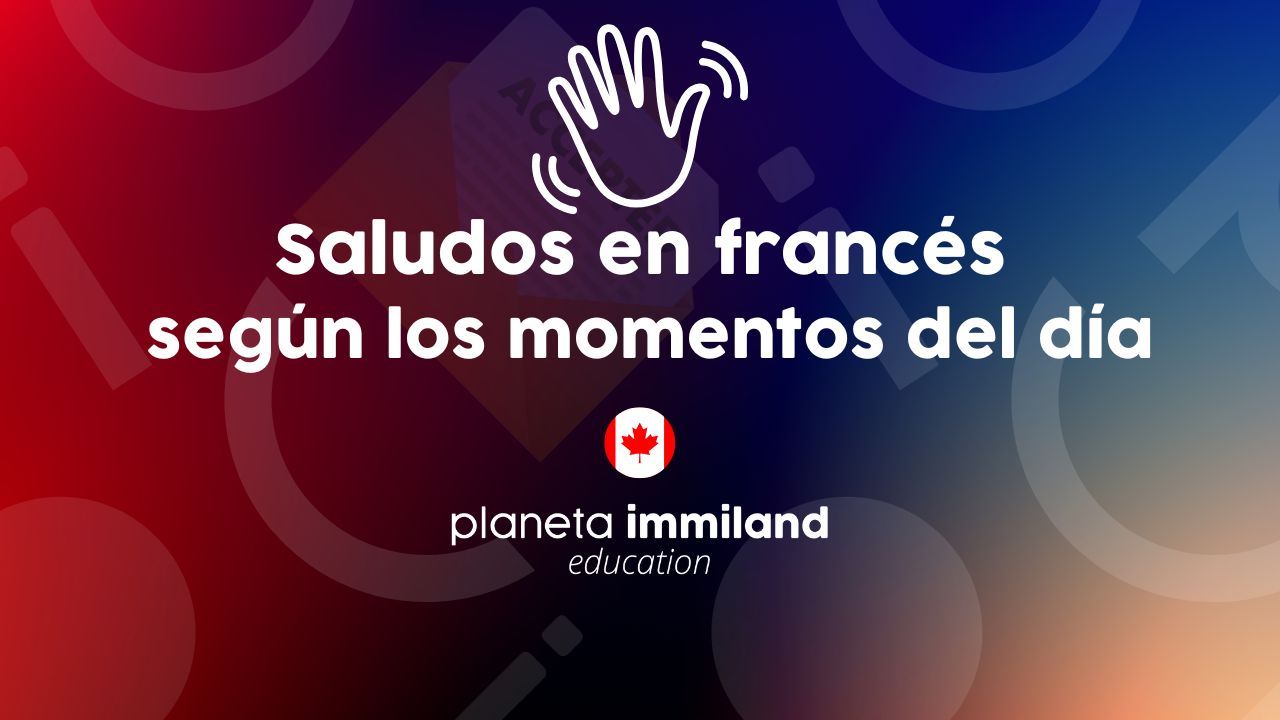Greetings in French according to the time of day
May 01, 2025
Written by Gabriela Estrada
Did you start your first French class? Did you know that learning the correct greetings according to the time of day will help you start any conversation with more confidence and in the best style of the French-speaking culture? Well, that's just the way it is!
French and French-Canadians place a high value on politeness and greeting, although each has slight variations. The former are more sober and formal when speaking and the latter, i.e., those from Canada, are warmer.
Today we will look at greetings in French at different times of the day and in different formal contexts e informal contexts, I will also leave you with key phrases to introduce yourself for the first time in the morning, the afternoon or the evening (matinée, après-midi, soirée).
Read to the end and take note of the vocabulary Let's get started!
Greetings in French according to the time of day
The start of the day in French is ideal for positive and energetic greetings.
Matinee (in the morning)
-
"Bonjour (Good morning).
Après-midi (in the afternoon)
- Bon après-midi. (Good afternoon).
- Comment allez-vous? (How are you?) → For polite conversations.
Soirée (evening)
In French, night greetings have two main approaches:
- Bonsoir: Good evening (greeting used when arriving somewhere in the evening).
- Bonne nuit: Good night (farewell before going to sleep).
- A phrase of tenderness to say goodbye is: Fais de beaux rêves (Have sweet dreams).
Greetings in different contexts - formal and informal
Greetings in work environments, at the academy or among friends and family:
-
Formal context (work, meetings, official events)
- Bonjour, madame/monsieur (Good morning, madame/sir) → To address with respect.
- Enchanté(e) (Nice to meet you) → For formal introductions.
- Bonsoir (Good evening) → For evening greetings at formal gatherings.
-
Academic context (school, university):
- Bonjour, professeur (Good morning, teacher) → To address teachers.
- Bonsoir à tous (Good evening to all) → For group greetings in evening classes.
-
Informal context (among friends, relatives):
Morning:
- Salut! (Hello!) → Very common and friendly.
- Coucou! (Hey!) → More affectionate, used between close friends or relatives.
Afternoon:
- Salut! is still valid.
- Ça va? (How are you?) → Used as a casual greeting.
- Quoi de neuf? (What's new?) → To initiate conversation.
In the evening:
- Salut! is still an option.
- Bonne soirée! (Have a nice evening!) → To bid you a fond farewell.
- À plus! (See you later!) → For future meetings.
In Canada, the greetings are practically the same, although in Quebec you can hear variations such as Allô! (similar to "Hello" in Spanish) in informal contexts.
Activate listening in French for fluent greetings
Activating the ability to listen is a powerful tool to pick up tones and words. picking up tones and words that will facilitate the initiation of any conversation, whether on the phone, in a professional meeting or during everyday activities. The combination of basic greeting vocabulary and active listening allows the French learner to interact more naturally and effectively in a French-speaking environment.
Strategies for reinforcing French greetings vocabulary
Suggested activity:
- Record a message simulating greeting a person in different scenarios, e.g. a friend, your boss, a family member, and adapt it according to the environment and time of day.
- Focus on pronunciation and grammar, and supplement with other words that fit the context.
Learn French with Planeta Immiland
Planeta Immiland offers French courses that will help you master the language from zero to the most advanced levels. Our practical approach, oriented to all contexts: work, study, daily life and immigration, is ideal for those seeking to integrate into Canadian society, facilitating the learning of specific vocabulary and expressions.
We are the first immigration language school for Canada and our certified teachers can teach you to speak French and English for work, school, personal or immigration purposes. In addition, we are certified by Languages Canada, which guarantees a good language learning adapted to the Canadian reality.
Visit our website with the available courses and, if you don't know your level yet, you can take this free free French testwith instant results and a special discount at the end of the test!
I hope this topic will help you start a good conversation with a cordial greeting in the best French style. Thank you very much for reading, see you in the next blog!
With love,
Planeta Immiland Education
Not sure about your level of English or French? Don't worry!
At Planeta Immiland Education we offer a free online placement test to help you find out your language level and design a personalized study plan for you. Find out your English or French level in a few minutes and start improving your language skills today!
Subscribe to our mailing list.
Leave us your contact information to learn more about our courses, tips, and promotions.


